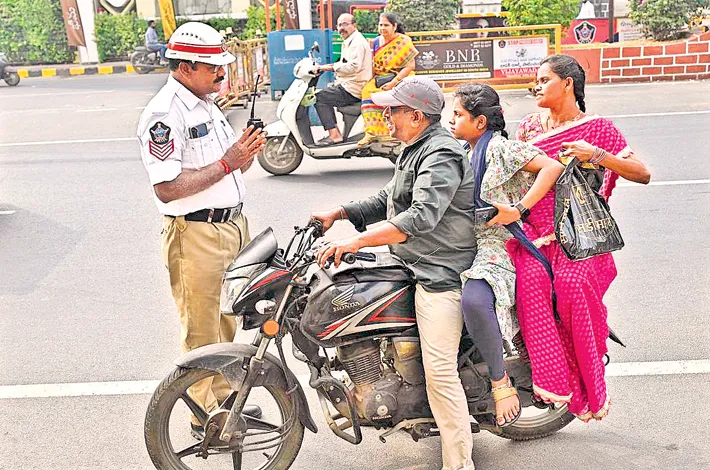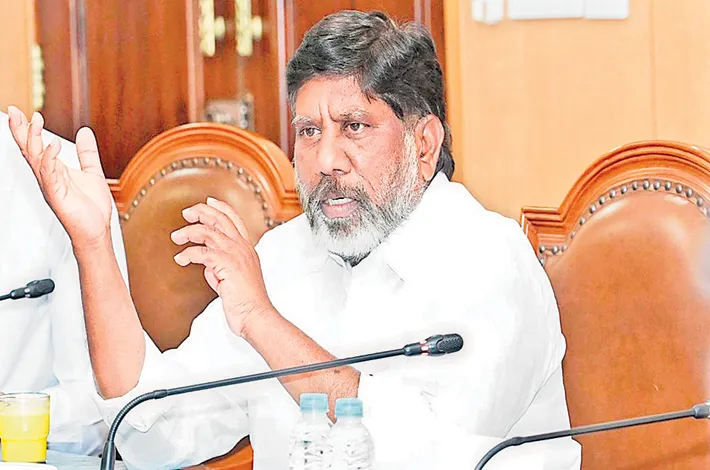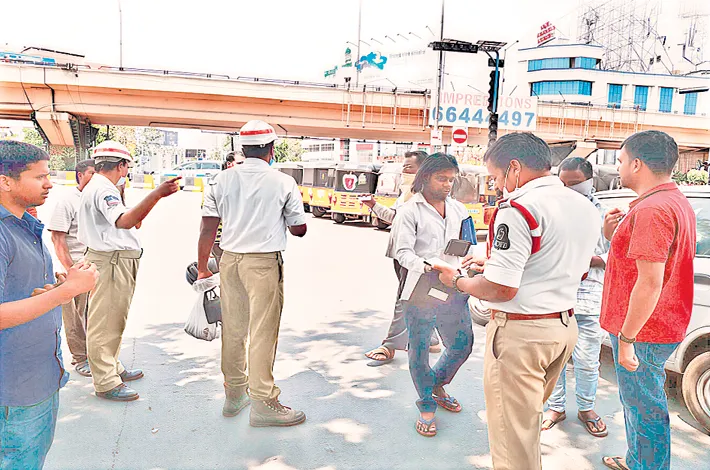AP Govt’s crack down on traffic violations
03-03-2025 12:00:00 AM

The revised rules introduce significant fines for non-compliance with traffic regulations. Violators will face the following penalties:
■ Riding without a helmet: Rs.1,000 fine.
■ Driving a car without a seatbelt: Rs.1,000 fine.
■ Drunk driving: Rs.10,000 fine along with possible license cancellation.
■ Jumping signals or driving in the wrong direction: Rs.1,000 fine.
■ Driving without a valid license: Rs.5,000 fine, with the possibility of vehicle seizure.
■ Driving without valid insurance: Rs.2,000 fine for the first offense, Rs.4,000 for the second.
■ Using a mobile phone while driving: Rs.1,500 fine for the first offense, Rs.10,000 for the second.
■ Triple riding on a two-wheeler: Rs.1,000 fine
kiranmai tutika I amaravati
In a bid to curb the rising number of road accidents and enforce stricter traffic regulations, the current government has revived and is rigorously implementing the long-overdue Motor Vehicles (Amendment) Act, 1988, and its subsequent amendments. This decisive action comes after the previous administration’s failure to effectively implement Government Order (G.O.) No. 21, issued on October 21, 2020, which laid out stringent penalties for traffic violations under Section 200 of the Motor Vehicles Act, 1988.
The previous government had initially introduced the revised compounding fee structure for various traffic violations, aligning with the Motor Vehicles (Amendment) Act, 2019. However, despite the enactment of these provisions, enforcement remained lax, leading to no significant reduction in road mishaps and traffic-related fatalities.
According to official data, road accidents continued to rise during the previous administration due to poor enforcement, ineffective monitoring, and lack of stringent action against violators. During 2023, 8136 deaths occurred and 4318 people were severely injured. In the same year almost 11025 non-fatal cases were registered and 16659 were injured. In 2024, 7863 deaths occurred and 4074 were fatally injured. The failure to execute the provisions meant that rampant violations such as driving without a license, over speeding, non-compliance with seatbelt and helmet laws, and unauthorized vehicle modifications remained unchecked.
Under the revised framework, fines have been increased significantly to deter habitual offenders. For instance, driving without a valid license now attracts a penalty of Rs. 5,000, while dangerous driving incurs a fine of up to Rs. 10,000 for repeated offences. Non-compliance with seatbelt and helmet laws also results in heavier penalties. In addition, the government has ensured that all collected fines are remitted to the treasury under the designated account to maintain transparency. This measure aims to strengthen financial accountability while funding future road safety initiatives.
NTR District Commissioner of Police S.V. Raja Sekhara Babu highlighted the renewed enforcement efforts, stating, “Earlier, despite having the necessary legal framework, implementation was weak, leading to countless preventable accidents. This time, we are committed to strict enforcement to ensure safer roads for all.” With the current administration’s strong push for traffic discipline, Andhra Pradesh’s roads may soon witness a significant decline in accidents, ultimately saving lives and enhancing road safety across the state.








